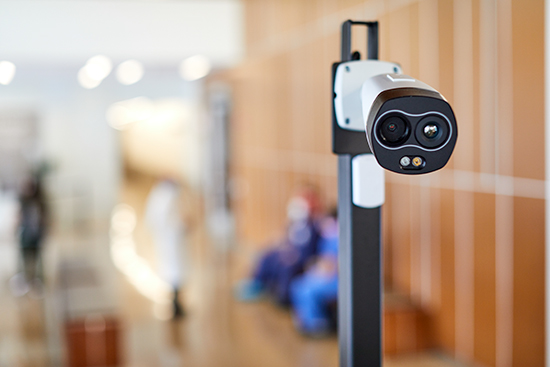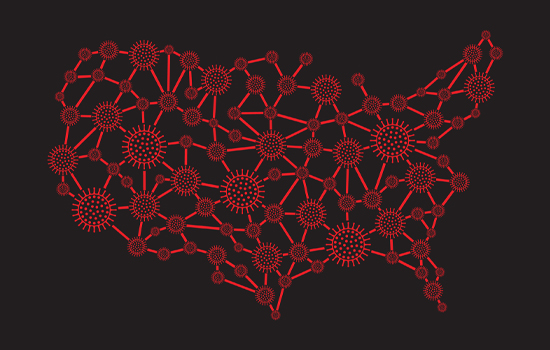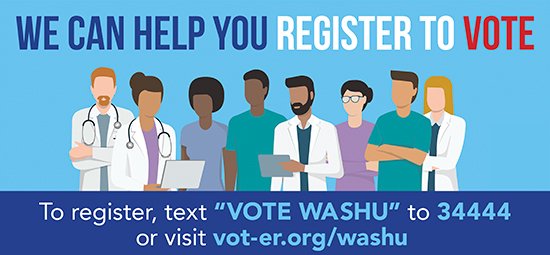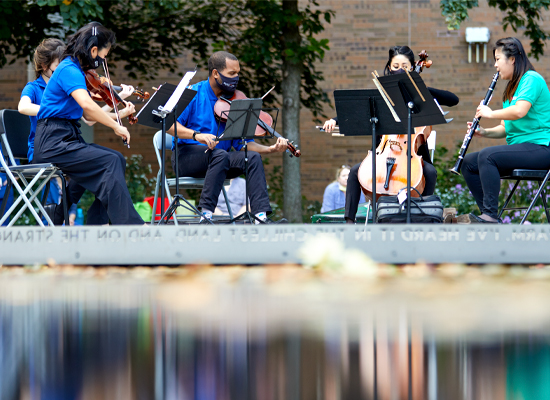Today's COVID-19 stats from BJH
|
COVID question of the week: What are WashU's guidelines for getting the flu vaccine during the pandemic?
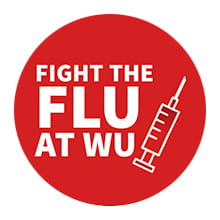 |
Washington University employees, including faculty, staff and trainees, working onsite must receive this year’s influenza vaccination, unless granted an exemption for medical reasons or religious beliefs. Students and contractors have a similar requirement. Those who are not working onsite are strongly encouraged to get a flu vaccine and provide appropriate documentation to protect themselves and their families. Flu vaccination is required should you return to campus through March 31.
This vaccine is covered by the university’s health plan. For those without WashU health insurance, the university has agreements with Walgreens and other local retailers to ensure employees can conveniently get a free flu vaccine. Onsite flu vaccine events will be held for those working on campus.
A new online flu vaccine portal allows each employee to submit a record of the completed vaccination or request an exemption. Nov. 20 is the deadline for onsite employees and trainees to receive and record a flu vaccine or request an exemption. Visit the WashU flu website to access the portal, learn more about the policy and see upcoming on-campus vaccination events.
New thermal scanners being installed for temperature checks
|
The School of Medicine and Barnes-Jewish and St. Louis Children’s hospitals are installing thermal scanning systems for temperature screening at more than 30 locations across the Medical Campus. The effort is aimed at keeping the campus community safe by helping to reduce the spread of COVID-19.
The thermal scanners are being installed in areas commonly accessed by employees and students and will be activated in early October. The scanners use cameras with infrared technology to instantly detect elevated temperatures.
Each scanner can accurately measure the body temperatures of up to 35 people at a time.
Those walking past a thermal scanner will be asked to remove hats and glasses to ensure an accurate temperature reading. The scanners will streamline temperature screening and reduce the staffing needed to conduct temperature checks.
Employees and students still will need to complete the daily online screening questions before coming to work or school on the Medical Campus. Employees and students who have not completed the daily online screening will be asked by staff at screening stations about any COVID-19 symptoms and exposures.
Patients and visitors will still undergo temperature checks and be asked about symptoms and exposures at screening stations set up at campus entry points.
Any employee or student who has a fever — defined as 100 degrees F or above — will be asked to return home and notify the Office of Occupational Health by calling the COVID-19 hotline at 314-362-5056 to determine next steps, which may include arrangements for a COVID-19 test. Employees should also contact their supervisor.
U.S. reaches COVID-19 milestone: death toll over 200,000
|
The U.S. has reached a COVID-19 milestone of more than 200,000 deaths. William Powderly, MD, the Dr. J. William Campbell Professor of Medicine, was quoted in a recent NPR story about the pandemic’s path in several areas of the country.
Powderly said the current spike in the number of COVID-19 cases and deaths in the Great Plains and parts of the Midwest is partly due to not requiring social distancing or masks. He also thinks that a lot of communities need to see a large number of cases to realize that the COVID-19 threat is valid. “St. Louis experienced it, but in other parts of Missouri where they didn’t have that experience, they’re now seeing rapid rises in cases and increases in hospitalizations,” he said.
Blood drive on campus Oct. 9
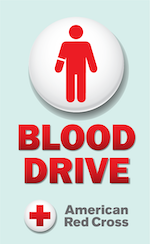 |
The COVID-19 pandemic is creating critical blood shortages in the U.S. An on-campus blood drive will be held from 7 a.m.-5 p.m. Oct. 9 in the link near the Sprint/TFC Customer Center. Donors must wear a mask and must register (enter sponsor code: BJH); no walk-ins will be taken. All donated blood will be screened for the presence of COVID antibodies with donors receiving the results. Learn more about antibody testing.
Shorten donation time by using RapidPass to complete the donation questionnaire prior to visiting a drive. Bring the printed questionnaire results with you or show them on a mobile device at the drive.
For a successful donation, hydrate, wear comfortable clothes, maintain a healthy level of iron in your diet before donating, bring an ID and a medication list. More donation tips.
Register to vote by Oct. 7 in Missouri
|
Take action now to make sure you are prepared to vote Nov. 3. You still have time to register to vote and request an absentee ballot if you choose not to vote in person due to the pandemic.
Washington University is helping to simplify the process through this voter registration website.
Oct. 7 is the voter registration deadline in Missouri; this applies to mail-in registration (postmarked by Oct. 7), online or in-person. In Illinois, the deadlines are: Oct. 6 for mail (postmarked by Oct. 6); Oct. 18 for online; and Nov. 3 for in-person registration.
Starting Monday, students will be registering voters at various locations on the Medical Campus, including the first and third floors of the Center for Advanced Medicine.
|
A quintet from the St. Louis Symphony Orchestra performed Sept. 24 in Hope Plaza as a thank-you to front-line workers who continue to serve at the Medical Campus.
Important numbers and links
-
Call the BJC/WUSM employee hotline for COVID-19 exposure or illness: 314-362-5056
-
Use this online screening tool before reporting to work
-
Know your screening stations
-
Review inpatient protocol
-
Review ambulatory protocol
-
Call the Well-Being Line for in-the-moment emotional support: 314-286-1700
-
Contact the Employee Assistance Program for 24/7 work-life support: 844-365-4587
-
Email story ideas and requests to heroes@wustl.edu

